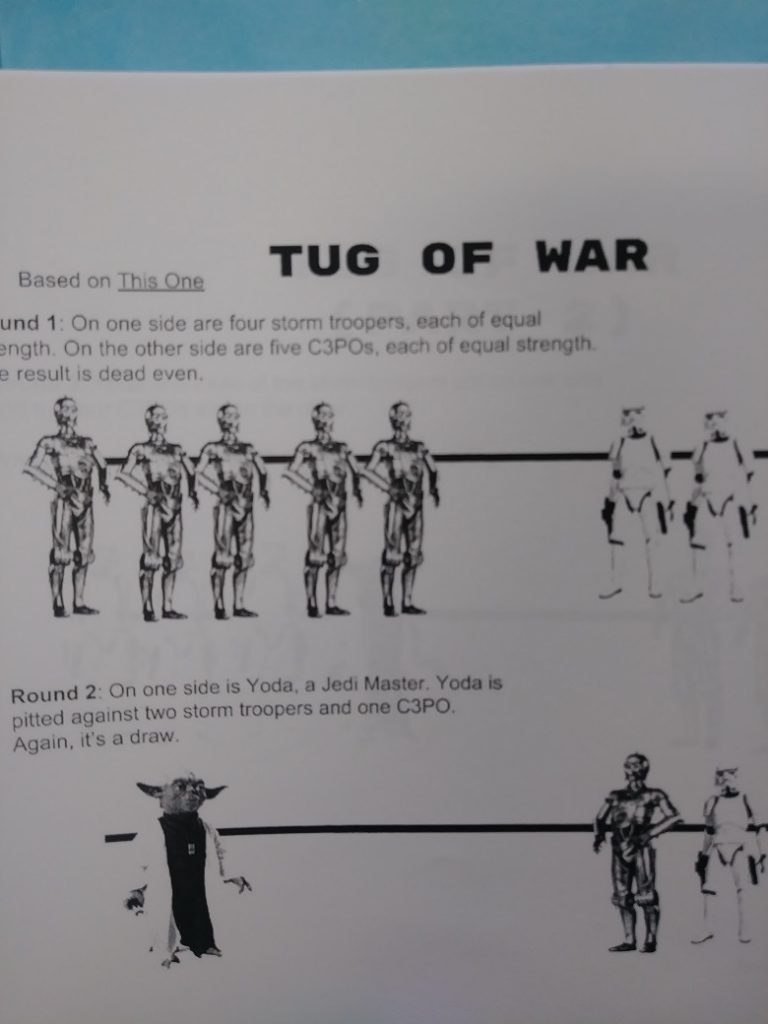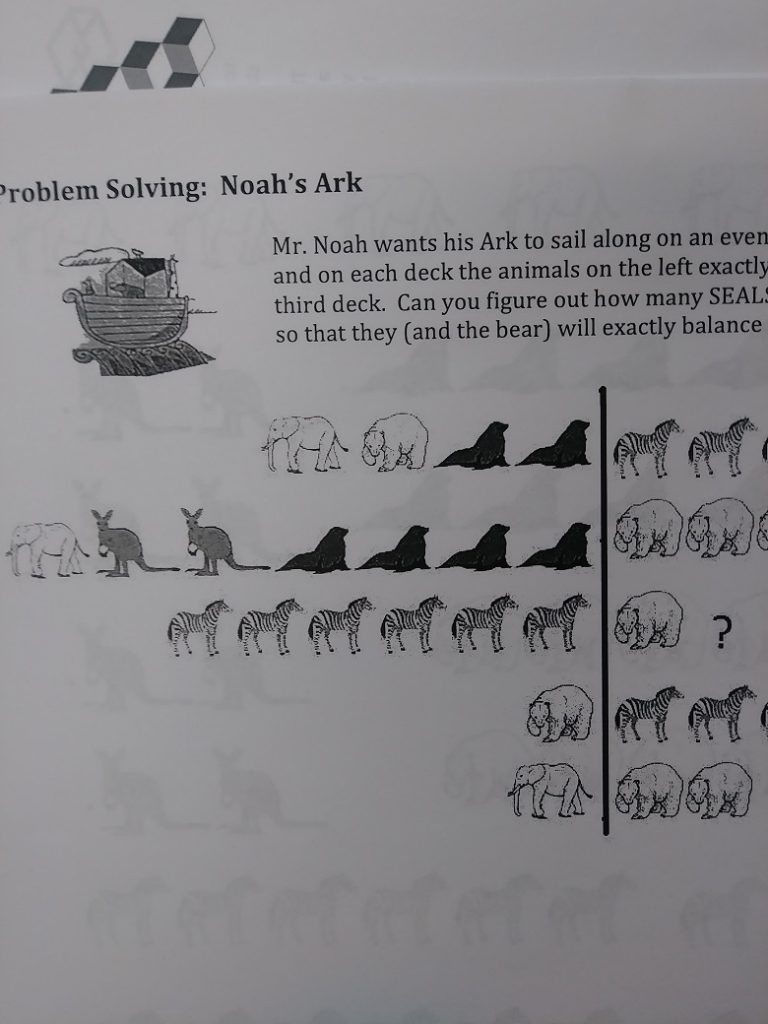All puzzles are linked in this post! Don’t worry they are all not showing – I share. I promise!
I know the photos are terrible – go see my other website … I can do better 🙂

My students had some AMAZING conversations over these puzzles yesterday! After our warm-up (the 24 game is popular now), I gave them the Star Wars problem first. It is simpler, more straight forward, and many students intuitively figure out the answer to Round 3…. but must explain their thinking. That part takes 10 minutes or more. They must work on their own at first and then explain to their partner how they arrived (or tried to arrive) at an answer.

The second problem I introduced was Fawn Nguyen’s Noah’s Ark problem. They had even better conversations with this problem. First, we read the problem on our own for a few minutes. Maybe make some predictions or choose some strategy. Then, we work with a partner to solve it. This problem took much longer of course and students had two different answers at the end. Most of them took the old fashioned route of using the information at the bottom of the paper and worked their way up. After solving it in groups, we took to the board and started out with: what do we know for sure? Which then leads us to 1 elephant = 2 bears, 1 bear = 3 zebras and therefore 1 elephant = 6 zebras. Then move higher up the chain to work with the kangaroos and seals.
I gave them pictures of the animals to cut out and use… but none of them did. It is always interesting to see what students will use. I know ours use white boards a lot in the younger grades and that is what they are familiar with and is easy. For me instead of creating a set of equations (1E=2B etc.), I found it easier to convert the animals to pounds. The lowest number that has a lot of factors I could use is 12. So I made the elephant 12 pounds and made my deductions from there. So, the bears are 6 pounds each, etc.
What is an equation?
What are some strategies we can use to solve this problem?
Explain why you think the answer is ____ seals.
• How else could you have …?
• How are these _____________
the same?
• How are these different?
• What would you do if …?
• What would happen if …?
• What else could you have done?
• If I do this, what will happen?
• Is there any other way you could …?
• Why did you …?
• How did you …?

